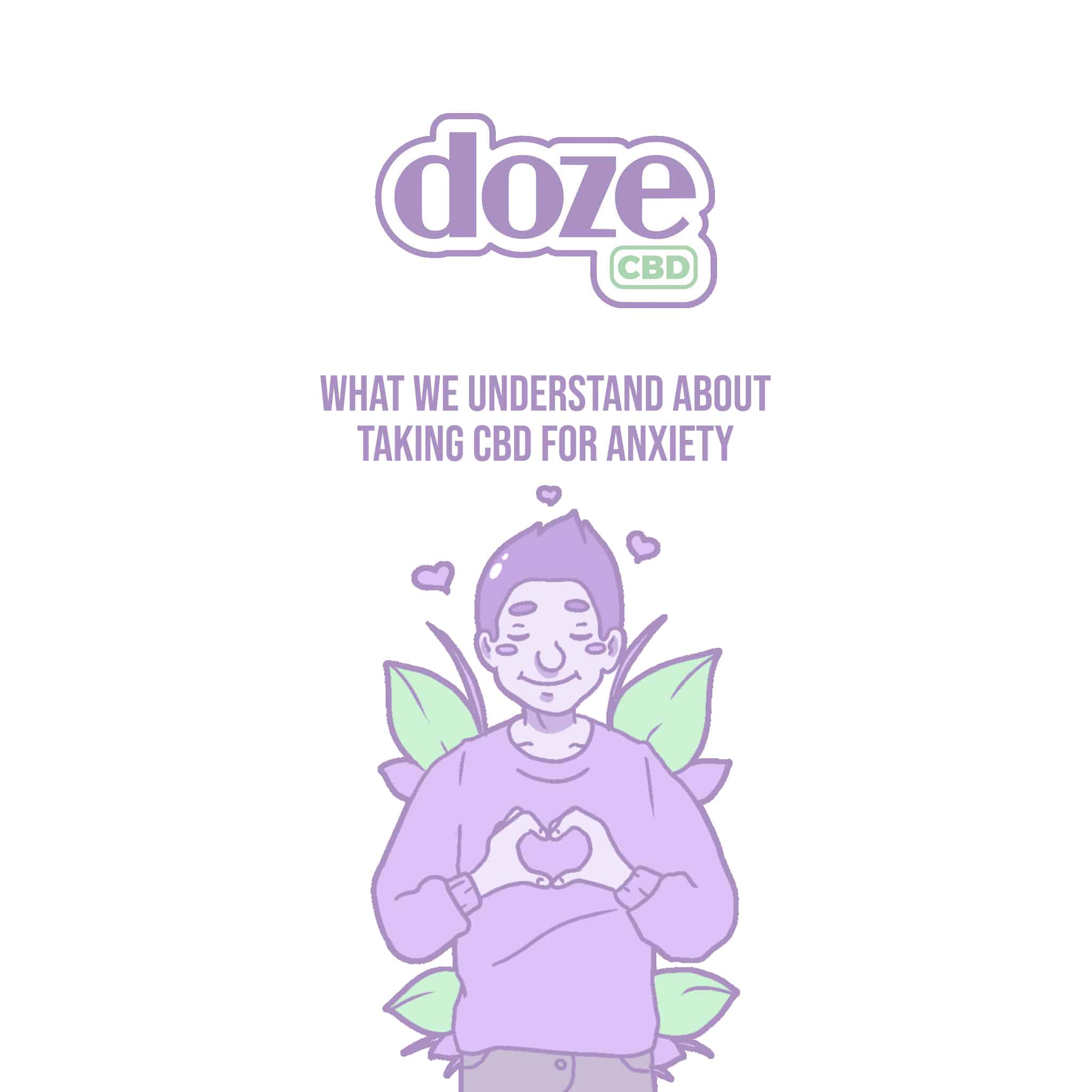Most of us know what it’s like to suffer from anxiety at some time or another. While some anxiety is circumstantial and temporary – say, the anxiety you feel before a job interview or in tandem with other acute experiences like grief – it’s all too common for anxiety to be more persistent.
This is known as generalised anxiety disorder, or GAD, and simply means that someone’s anxiety is not related to any one particular experience, event, or cause. Generalised anxiety is very common, although statistics published by the Mental Health Foundation show that less than half of people with GAD access treatment.
There are a lot of different options for treating anxiety and, as with any medical condition, it’s important to reach out to your GP in the first instance.
Fortunately, we all find it a lot easier to talk openly about anxiety than we used to, and that has led to more people exploring lifestyle changes and other options for taking better care of their mental health. For many years now, the CBD flower has been a popular talking point in these conversations, with some users claiming it alleviates the symptoms of their anxiety and makes it easier for them to relax at the end of the day.
Here’s what you need to understand.
The common symptoms of anxiety
Anxiety presents in a lot of different ways. The symptoms range from the physical to the emotional, and that can make it difficult for some people to identify that anxiety is the root cause of how they’re feeling.
A lot of these symptoms can be attributed to an excess of the ‘stress hormones’ cortisol and adrenaline. These hormones are released in stressful or dangerous situations to make us more alert and ready to face the problem head-on or run away. It’s an evolutionary advantage found in many different species, but it often butts heads with the ongoing stressors of modern life.
No two people will experience acute or generalised anxiety in exactly the same way, but it’s always worth knowing and understanding some of the more common symptoms:
Physical symptoms
- Irregular heart rate
- Dizziness
- Sweating
- Restlessness
- Nausea and digestive issues, including changes in appetite
- Shortness of breath or laboured breathing (dyspnoea)
- Headaches
- Unexplained pains
Emotional symptoms
- Catastrophic thinking
- Irritability
- Low mood
- Feeling very self-conscious or judged
- Low self-image
- Insomnia
- Feeling like time and sound are speeding up or slowing down, often referred to as ‘fast feeling’
How CBD might be able to help
CBD may offer a lot of different benefits for humans – and some animals, too! There’s a lot of research to be done before we can make any definitive claims, but a lot of different users have reported a long list of benefits.
One of the most important things to understand about CBD is it’s capable of having both a physical and emotional effect. This is down to the very unique (and complex) way that CBD interacts with our bodies. Once it enters our bloodstreams, either through smoking, vaping, or ingesting it, CBD interacts directly with our endocannabinoid receptors, which form part of the ECS (endocannabinoid system).
There are many, many endocannabinoid receptions in our brains, and their primary role is to control many different neurotransmitters and the central nervous system. This means it influences a long list of processes throughout the body, from immunity and pain responses (along with inflammation) to mood, sleep, and our emotional health.
Here are a few ways CBD may be capable of alleviating anxiety:
- A boost for serotonin
Early research suggests that CBD interacts with the levels of serotonin within the body – or how the body responds to its own levels of serotonin. This study published in Neuroscience Letters, for instance, found notable increases in the levels of serotonin in the hippocampus as a result of sustained CBD use.
Serotonin is commonly known as the ‘happy hormone’. The body creates serotonin naturally but, if it doesn’t produce enough, we can start to feel low, depressed, and anxious. Many medications designed to treat anxiety aim to increase serotonin levels in the brain. - Better sleep
While fixing your sleep patterns won’t cure anxiety on its own, it’s nonetheless true that a good night’s rest is important not just for your mental health, but also for your physical health. Poor sleep can impact mood, appetite, immunity, concentration, and impact our performances at work – all of which will exacerbate your anxiety.
A lot of people claim CBD enables them to sleep better. Check out our guide to CBD and insomnia to find out more. - Much-needed R&R
Anecdotally, a sense of calm and relaxation is one of the most common experiences users report. Legally, CBD sold in the UK cannot contain more than a trace of THC – and none of our hemp flowers contain more than 0.01% – so CBD won’t get you high like marijuana.
In fact, in higher doses, THC can exacerbate anxiety, so CBD is the perfect (and legal) alternative.
Using CBD for Your Anxiety
As with any health condition, you’ll want to speak with your GP in the first instance. Anxiety, low mood, and depression should all be taken very seriously, and it’s always better to talk to a professional before you change-up your wellness routine. CBD has relatively few contraindications (medications it reacts badly with) but, even so, you should double-check about adverse effects with any medications you’re already taking.
The non-profit Mind is a great resource for finding help for mental health problems.
If you’ve never tried CBD before, then we’d advise you start at a low dosage and work your way up, paying close attention to your physical and emotional health so you can find a dosage that works for you.
You may also want to experiment with how you take your CBD. Smoking and vaping are popular choices because of how quickly users can start to feel the effects, whereas edibles and oils are a little more convenient and discrete. It’s all about your own personal preferences and what works best for your lifestyle.




